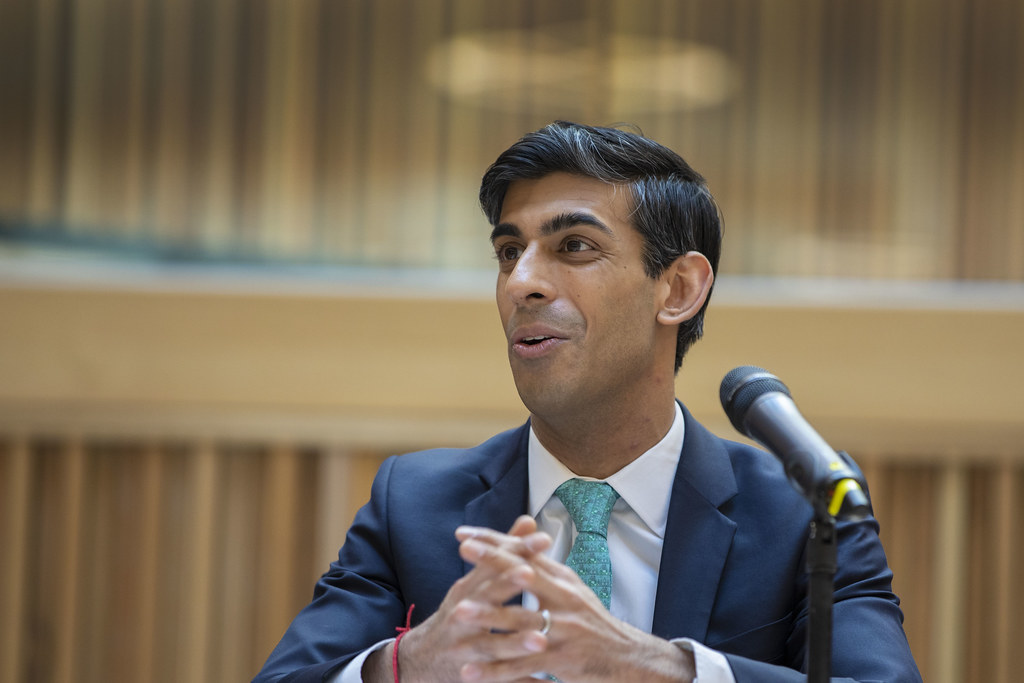
Featured Image: ‘The Chancellor Rishi Sunak signing the devolution deal for West Yorkshire‘ by HM Treasury from Flickr is licensed under CC BY-NC-ND 4.0 (link to license deed).
As April fast approaches, so do the terrible economic policies of Chancellor Rishi Sunak. The cost-of-living crisis is taking its toll on the poorest in society. Millions are being plunged into poverty and destitution. According to ‘Money Saving Expert’ Martin Lewis: “We have a real, absolute poverty issue going to come in the UK, with food banks oversubscribed, and debt crisis agencies do not have any tools.” More than a decade of Tory austerity has hollowed out the core of the welfare state. The social safety net is now a mythological creature — one the affluent of Britain tell themselves exists to justify their moral indifference. The levels of poverty in Britain today are a scar on this nation’s conscience, and the government’s economic recovery plan needs to be one that addresses this.
How did we arrive at this tragic state? Gordon Brown has many political legacies. Most significantly though was his commitment to reducing child poverty. At the turn of the century he promised to abolish child poverty in a generation. Between 1998 and 2011, his work managed to lift 800,000 children out of deprivation. This was not only thanks to his economic policies, but also his strong commitment to the issue — which culminated in the Child Poverty Act 2010. The legislation set out national targets for child poverty levels and ensured strategies were put in place to achieve them. Two months later he was ousted by the electorate and the Coalition Government were brought in to wreck what he had built. The Tories’ brutal welfare reforms and blatant disregard for the poorest in society led poverty to skyrocket. In 2016, unable to legally comply, they scrapped the targets set out in the Child Poverty Act.
This has led us to where we are today: 4.3 million children in Britain live in relative poverty, making up almost a third of all young people. An estimated 49% of children living in single parent families are in poverty and 75% of all deprived kids live in a household with at least one person in employment. Once, poverty was equated with joblessness — not anymore. Endless tax rises, as well as curbs to employment rights and union powers, have resulted in the simple fact that a job doesn’t guarantee the bills can be paid. Even in the city of Exeter, between the large townhouses and behind the spectre of affluent Exet-ah culture, 13.6% of children are living in deprived households.
However, it is the events of recent months that have exacerbated this dire situation. The energy crisis — already horrific — has reached new heights due to the war in Ukraine. Energy bills continue to climb ever higher, and the price of fuel has become extortionate. Meanwhile, fossil fuel companies announce profits of billions of pounds. Money which isn’t being invested into further production to ease the crisis, but is instead lining the pockets of shareholders and directors. The rising energy prices are having a knock-on effect on prices across the economy. Inflation is set to reach its highest level in forty years. The cost-of-living crisis is being dragged along with it. Living standards are set to fall by the sharpest within-year decline since records began in the 1950s.
What is the chancellor doing to resolve this horrendous crisis? His mini-budget on Wednesday set out a series of measures that were expected to boost the economic situation and minimise the impact for the working poor. His actions, however, were wholly inadequate and inequitable. Sunak has decided that taxes should be raised and that this burden should be carried by ordinary hard-working families up and down the country. Despite policies such as the 5p fuel duty cut and the 1p reduction in income tax to give a perception of a true-blue ‘tax cutting chancellor’, the overall tax burden is rising by 3%. The measures announced in the autumn, such as the income tax threshold freeze and the National Insurance hike, accompanied by high inflation are what is pushing up tax receipts. Meanwhile, welfare payments are falling, as is public sector pay — despite the relatively stable employment figures.
The treasury does not have any sincere desire to improve the growing poverty crisis. It is not credible arguments about fiscal responsibility or economic theory governing Sunak’s decisions, but simply a disregard for the horrific situation in which citizens live. Millions of families are on the breadline, millions more are making difficult decisions about whether to heat their homes or buy food. Britain is heading into a decade of destitution not seen for years. A decade that will scar a generation. A decade of rising crime, declining public health, falling education standards and general social upheaval. All the result of political failure.



Average Rating